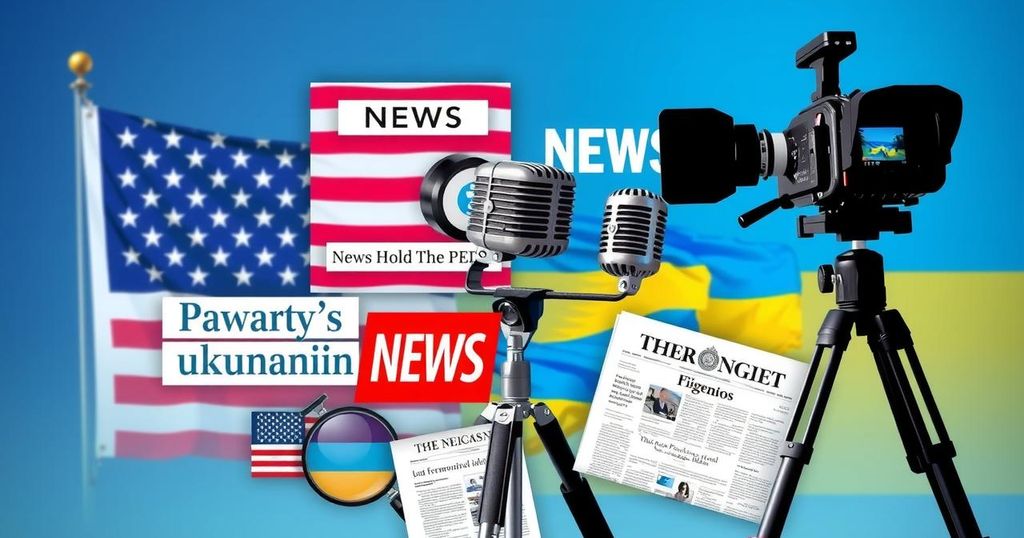Chinese media reports on two critical U.S. foreign policy events involving Donald Trump: the contentious meeting with Ukraine’s Zelenskyy and Trump’s Gaza redevelopment proposal. There are notable concerns about the implications of these events on international relations and shifts in U.S. influence. Chinese commentary emphasizes the need for dialogue, questioning reliance on U.S. support and advocating for Palestinian governance in Gaza.
In recent weeks, Chinese media has reported on two critical events tied to U.S. foreign policy: the contentious meeting between Donald Trump and Ukraine’s President Volodymyr Zelenskyy, and a controversial proposal regarding Gaza. These incidents have stirred strong reactions, reflecting significant concerns about the implications of U.S. actions on international relations.
The meeting on February 28, which involved a severe rebuke of President Zelenskyy, marked a notable shift in U.S. policy towards Ukraine that European nations perceived as damaging to both the transatlantic alliance and democratic principles. Concurrently, a February 4 announcement made with Israeli Prime Minister Benjamin Netanyahu proposed U.S. control of Gaza and the establishment of a “riviera” there, an idea swiftly rejected by the Arab world.
While Russia welcomed Zelenskyy’s chastisement, China, a key ally, refrained from directly criticizing the U.S. or Trump. Instead, Chinese officials expressed opposition to the displacement of Gaza’s population without naming specific entities, indicating a nuanced diplomatic stance amidst increasing regional activity.
Chinese state media, including the Global Times and People’s Daily, interpreted these events as signals of the waning influence of the U.S.-led Western political order. Commentary suggested that reliance on U.S. support could be misguided, emphasizing a need for broader dialogue among international stakeholders. An article in People’s Daily cautioned against public negotiation spectacles, asserting that effective diplomacy must occur away from the spotlight.
Additionally, a critique in the Global Times explored the implications of Trump’s proposals for gas and mineral agreements with Ukraine, portraying them as exploitative and indicative of shifting global diplomatic dynamics. Throughout these discussions, Chinese media has reiterated a commitment to multipolarity and calls for peaceful resolutions rather than military engagements in international conflicts.
Regarding Gaza, following the October 7, 2023 Hamas attack, China has consistently advocated for peace and the necessity for Palestinian governance over Gaza. Foreign Minister Wang Yi underscored that Gaza rightfully belongs to the Palestinian people, aligning with proposals from Arab nations and supporting local governance.
Thus far, Chinese commentary has primarily reaffirmed its established stance rather than intensifying critiques of Trump’s Gaza proposal. Commentators note that any future governance of Gaza should be determined by Palestinians, emphasizing that the territory should not be dictated by external powers including the U.S.
In summary, Chinese media is actively reflecting on the implications of U.S. foreign policy, specifically regarding the recent interactions between Donald Trump, Ukraine, and Gaza. The discourse highlights a significant shift in U.S. relations with European allies and commitment to Middle Eastern peace processes. Overall, the coverage suggests a strategic positioning by China as a proponent of dialogue and multipolarity in international relations, while simultaneously defending Palestinian rights.
Original Source: indianexpress.com




